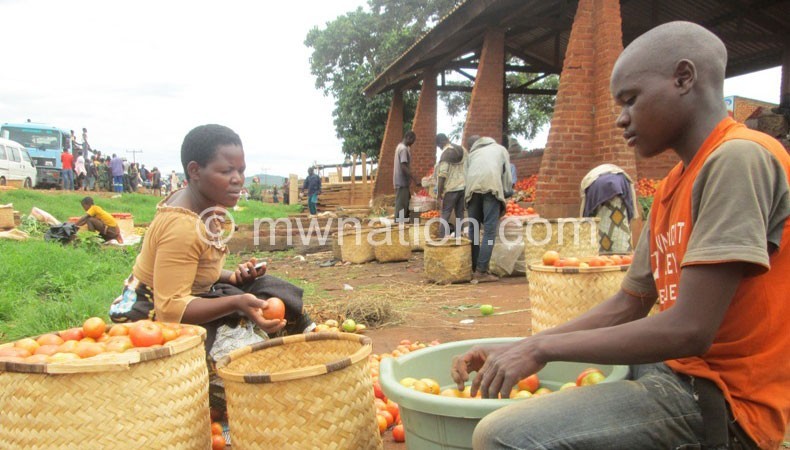Stocking access to agriculture market campaign
Lewis Sitolo from Traditional Authority (T/A) Sitola, group village head Chipamba in Machinga District is a disgruntled soya bean grower.
He has been in soy bean farming endevour since 2008 but he seems to be a devastated farmer as his returns do not equal the resources invested.
Sitolo says he is neither rich nor poor but floats in between, but that is a great concern to him, a father of five.

But as years went by, Sitolo says soy bean prices have fluctuated to as low as K90 per kilogramme (kg) from K250 per kg in some good years, which he said has eaten into his profit margin, squeezing hard his household welfare in the process.
Sitolo is among a myriad of farmers nationwide who are feeling the pinch of lack of unreliable agriculture markets and are at the mercy of traders who merely buy their produce at low prices.
In his area, vendors dictate prices and without really considering how much Sitolo and his farmer friends have invested.
Such a desolate song continues to be chanted by most farmers countrywide who have loathed the gradual disappearance of Admarc on the market.
Then, probably in the 1970s, the institution could rigorously carry out its social functions perfectly and bought grain and other and other farm produce as early as possible, just soon after farmers had harvested.
The state grain market trader, apparently, has lost glory and its inactivity has bombed to death most small-scale farmers who relied on the institution as a key outlet for their produce.
Concerned by such a pathetic trend, Oxfam Malawi and its partners in February last year launched its campaign on access to agriculture markets campaign (AAMC) for smallholder farmers.
The organisation has been running the campaign with the aim of influencing political leaders to provide structured markets, functional Admarc and facilitate the process of formulating a comprehensive agriculture marketing policy by 2015.
The campaign was divided into two phases namely, pre and post-elections and at the end of the elections campaign, all the four targeted presidential candidates including the incumbent president Peter Mutharika (Democratic Progressive Party), Atupele Muluzi (United Democratic Front), Joyce Banda (Peoples Party) and Lazarus Chakwera (MAalawi Congress Party) publicly made the commitment by signing the commitment form that they will see to it that campaign asks are addressed when they are voted into power In additional, 352 aspiring members of parliament signed the pledge form and of these 57 made it to parliament
AAMC was informed by a study that Oxfam in Malawi commissioned through Centre for Agriculture Research and Development (Card) of Lilongwe University of Agriculture and Natural Resources in 2013.
In a nutshell, the study report recommended that for smallholder farmers to access profitable agriculture markets, government and key players should provide functional markets, a functional Admarc that is able to respond to market dynamics and a comprehensive standalone agricultural marketing policy.
And in the wake of lack of reliable access to market, agriculture experts in the country continue to lament that smallholder farmers are losing out huge sums of income as their perishable agriculture produce are left rotting before finding their markets mostly through vendors who offer low prices.
Now one year down the line, Business Review took stock of the progress on the campaign and how it has assisted farmers in the country.
Oxfam in Malawi country director John Makina rates highly the impact of their campaign so far.
“On functional markets, Oxfam is happy that following the campaign and the hype that accompanied it, issues of access to markets are featuring highly in the ongoing discussions on National Agriculture Policy (NAP) that is being steered by the government,” he said in a written response to a questionnaire.
Makina said it is expected that access to markets issues will feature highly in the policy document.
On Admarc, Makina said Oxfam commissioned another study to determine what is required to revive the institution to perform the roles that Admarc played in the 1970s and 1980s.
He said Oxfam and its partners are using the report to engage all relevant stakeholders including technocrats on the functionality of Admarc.
According to Makina, currently questions are being raised on what would constitute a functional Admarc.
“Some experts are raising challenging suggestions on what we ought to do as a country to ensure that we have in place an institution (Admarc or any other), that takes care of the social functions of the needs of the small holder farmers – particularly women, without political interference.”




